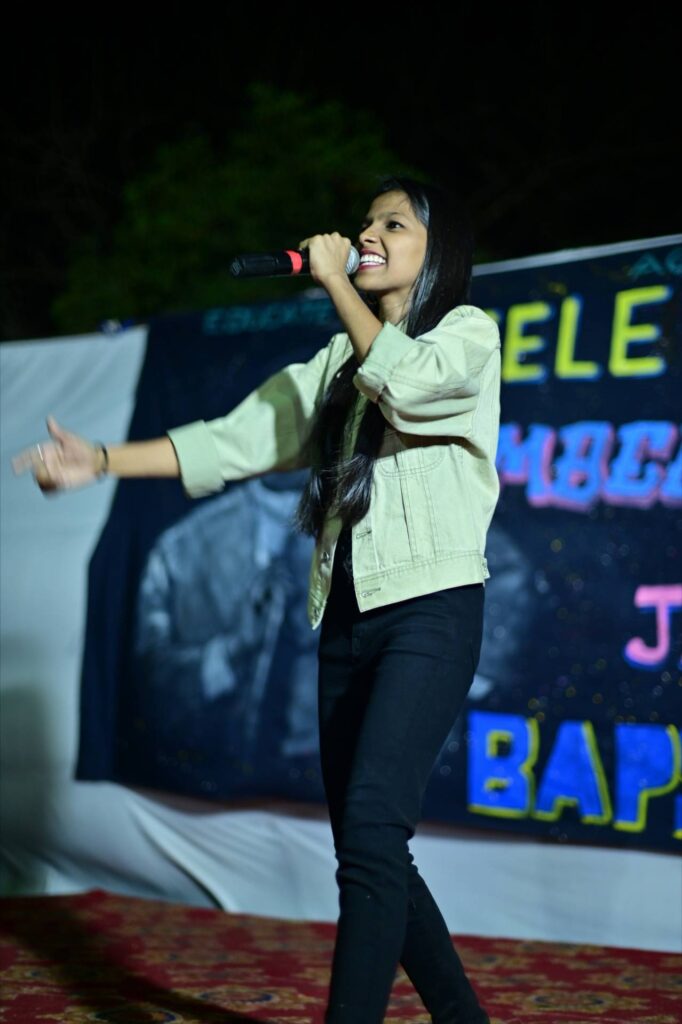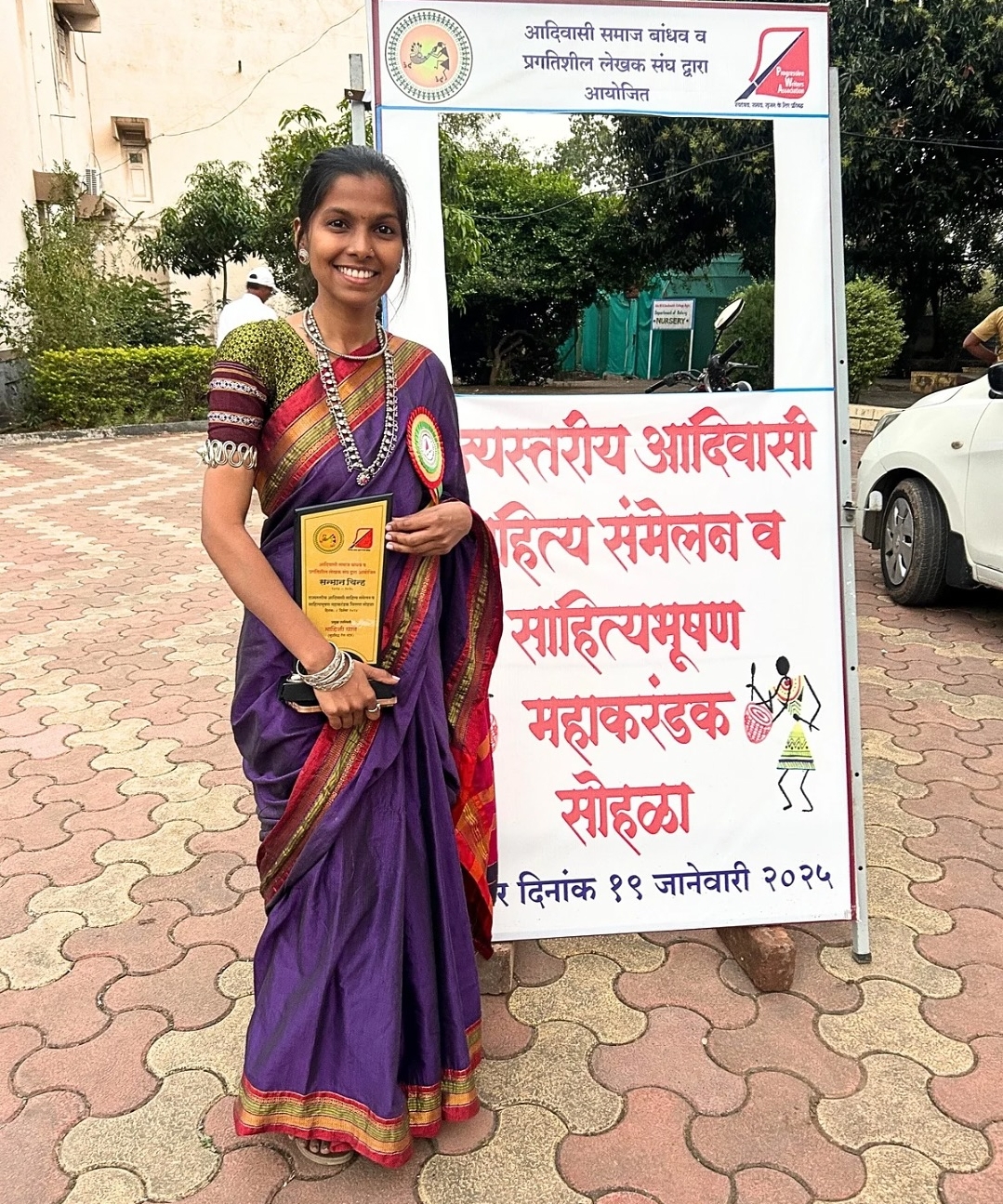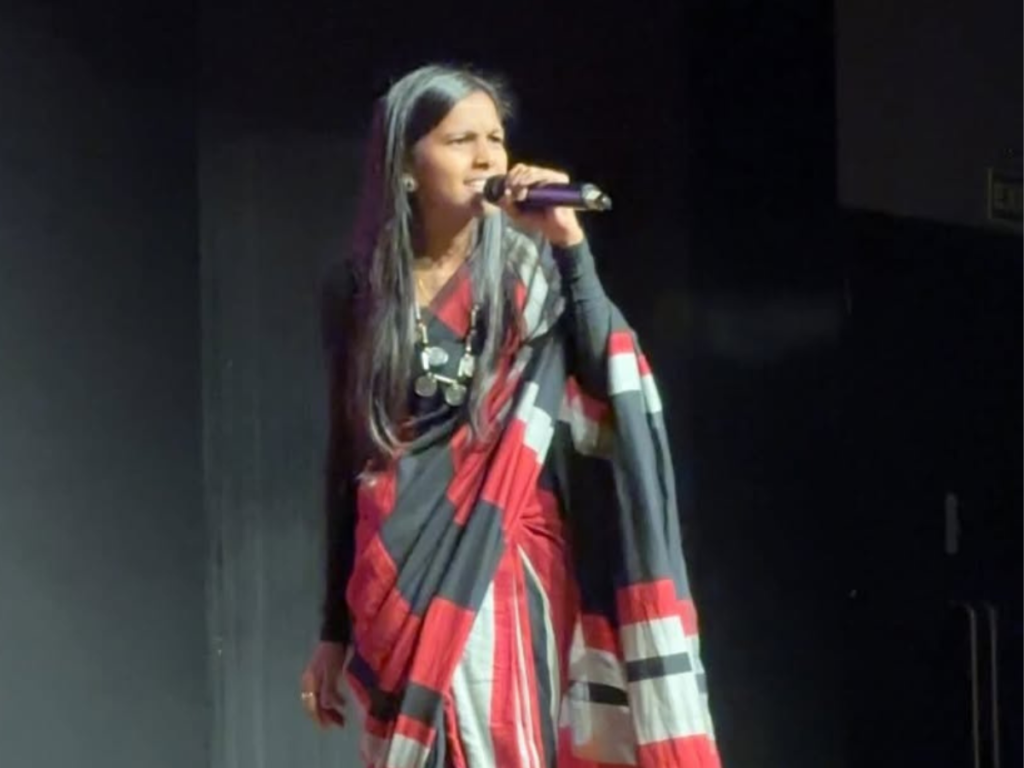In a world where IT jobs and engineering degrees define success, Madhura Ghane chose a path less traveled. Once an Infosys employee, Madhura—now known by her stage name Mahi G—has transformed into a powerful voice for India’s marginalized through the art of rap.
Born in the Forest, Raised for the Fight
Hailing from the Mahadev Koli Adivasi community in Maharashtra’s Kalan village, Madhura is the daughter of a bus conductor. Despite landing a prestigious job at Infosys, she knew her destiny was not behind a desk—it was on stage, with a mic in hand and truth in her lyrics.

Her music isn’t just entertainment; it’s a movement. Mahi G’s rap echoes the voices of farmers, transgender communities, and oppressed groups, channeling the energy of protest and awareness into verses that resonate with India’s social media-savvy youth.
From Gully Boy to Ground Reality
Inspired by the 2019 film Gully Boy, Madhura began her journey into hip-hop during the farmers’ protests. “I wanted the youth to wake up to what’s really going on in our country,” she said. “Rap gave me that platform to rage, to question, and to educate.”
While working at Infosys, she quietly wrote raps addressing hard-hitting issues—turning her passion into her purpose.
Rapping for Change, Not Fame
Mahi G’s songs aim to bridge the knowledge gap in her tribal community, especially regarding government schemes and rights. “Many in my community are unaware of benefits meant for them. I want to change that—through rap,” she says.

Her lyrical inspiration isn’t self-centered. Instead, she says, “If an issue hits me or leaves me thinking, I write about it. I feel every artist should carry responsibility. Music influences minds—especially in the age of the internet.”
Not Just a Rapper—A Revolution
Madhura Ghane isn’t just breaking stereotypes—she’s rewriting what success looks like for tribal girls, for engineers, and for artists in India. With a pen, a beat, and unmatched courage, Mahi G is using rap to shake systems, amplify voices, and demand awareness.


